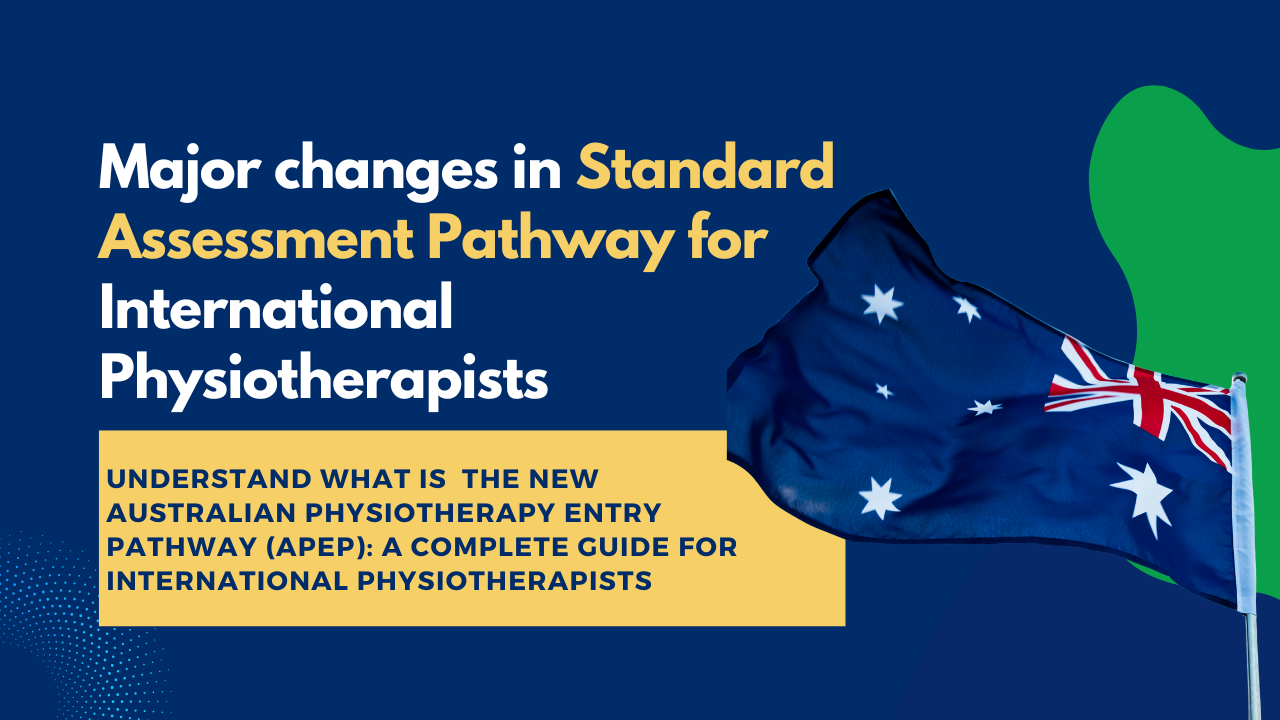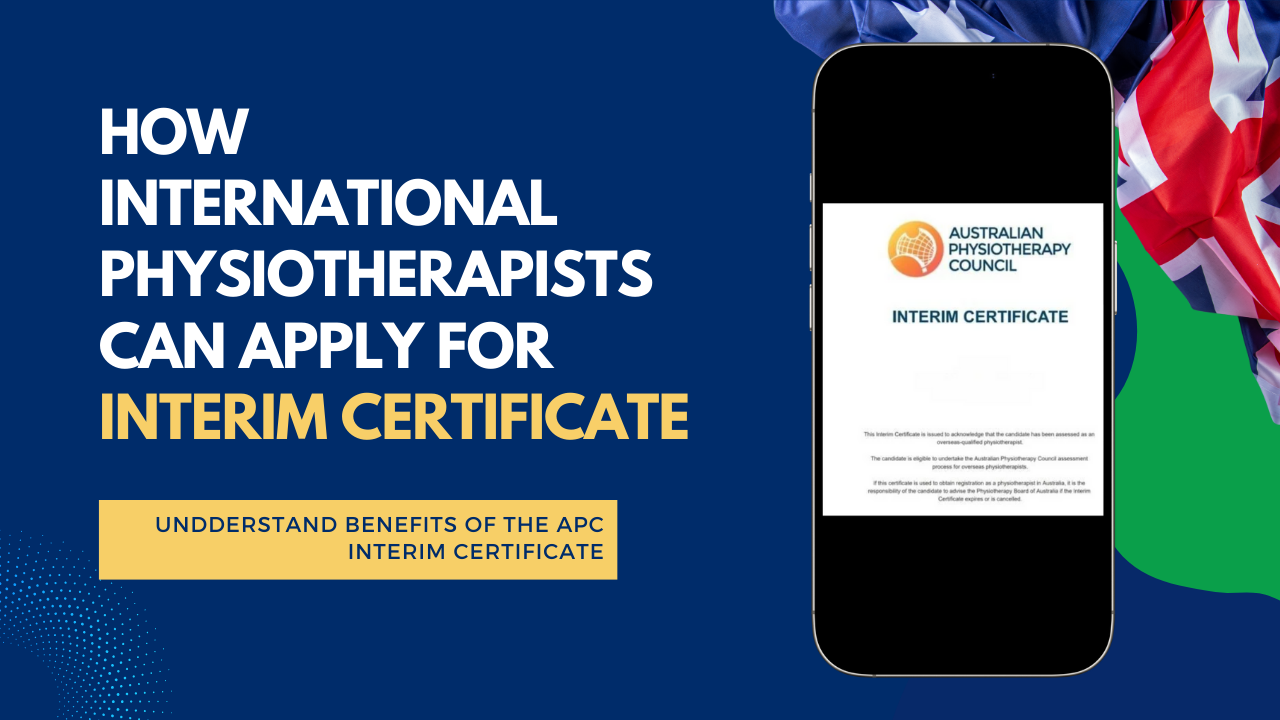The APC Written Examination is a critical step for internationally qualified physiotherapists seeking licensure to practise in Australia. Administered by the Australian Physiotherapy Council (APC), the exam assesses the depth and application of clinical knowledge across a wide range of physiotherapy domains. Understanding what is tested in the APC exam is essential to your preparation, as it aligns directly with the clinical standards expected in Australian physiotherapy practice.
Thank you for reading this post, don't forget to subscribe!In this article, we will explore the APC Written Exam content structure, covering the clinical areas, lifespan perspectives, settings, and professional practice domains that may be assessed. This blog is intended to help candidates prepare effectively for the physiotherapy license exam in Australia, also known as the Australian Physiotherapy Council Exam.
Overview of the APC Written Exam
The APC Written Examination tests your ability to:
- Apply clinical reasoning
- Interpret complex patient cases
- Make safe and evidence-based decisions
- Demonstrate familiarity with Australian healthcare standards and physiotherapy protocols
It is important to understand that this is not simply a physical therapy test of rote memorization, but an exam that evaluates clinical application of knowledge. The APC exam is computer-based and formatted as multiple-choice questions (MCQs), each derived from realistic clinical scenarios.
The Australian Physio Council assesses your ability across clinical areas, settings, and lifespan stages, along with a strong emphasis on evidence-based and ethical practice.
Clinical Areas Covered in the APC Exam
The APC written exam assesses knowledge across key clinical domains, including Neurological, Musculoskeletal, and Cardiorespiratory physiotherapy. You may also be tested on topics from Gerontology, Paediatrics, and Gender Health.
1. Neurological Conditions
You are expected to demonstrate applied knowledge in managing:
- Cerebral vascular accident (CVA) and transient ischemic attack (TIA)
- Acquired brain injuries (ABI)
- Brain and spinal cord tumors
- Degenerative disorders (e.g. Parkinson’s disease, ALS)
- Multiple sclerosis and other demyelinating conditions
- Cerebellar and neuropathic disorders
- Peripheral neuropathies and nerve injuries
- Cerebral palsy and developmental delays
- Dementia, cognitive impairments, and affective disorders
These conditions are representative of cases encountered across acute hospitals, rehab settings, and community care in Australia.
2. Musculoskeletal Conditions
This is a major focus of the australian apc exam and includes conditions such as:
- Muscle tears, strains, and weakness
- Ligament injuries and joint dysfunctions
- Tendinopathies and tendon ruptures
- Fractures, dislocations, and post-operative care
- Spinal issues: low back pain, scoliosis, and posture-related dysfunctions
- Arthritic and degenerative joint diseases
- Inflammatory and infectious conditions
- Nerve compression syndromes like Carpal Tunnel or Radiculopathy
- Congenital malformations such as hip dysplasia
Expect scenario-based questions reflecting cases seen in private practice, outpatient orthopaedics, and post-surgical care.
3. Cardiorespiratory Conditions
The australia physiotherapy council emphasizes safe and competent cardiorespiratory management in both acute and chronic scenarios:
- Myocardial infarction, heart failure, and cor pulmonale
- Pneumonia, ARDS, atelectasis (including post-operative prevention)
- Asthma, COPD, bronchiectasis
- Restrictive lung diseases (e.g. pulmonary fibrosis)
- Pleural effusions, pulmonary oedema, and cystic fibrosis
- Post-abdominal and thoracic surgical care
- Peripheral vascular disease and associated rehab
You may be asked to assess and manage patients post-surgery, in ICU, or during community-based rehab.
Lifespan Perspectives in the APC Written Exam
The australian physiotherapy council exam assesses your competency across all stages of life:
- Paediatric: including birth injuries, developmental milestones, and childhood disorders
- Adult: including acute injuries, chronic disease management, and return-to-work
- Geriatric: including falls risk, cognitive decline, and multi-morbidity rehab
The physiotherapy license exam in Australia demands awareness of developmental differences and age-specific precautions in physiotherapy intervention.
Settings Assessed in the APC Written Exam
Candidates should be familiar with a variety of healthcare settings, each with unique assessment, treatment, and communication protocols.
- Acute (hospital wards, emergency care, ICU)
- Subacute / Rehabilitation
- Community Care (home visits, outpatient, aged care)
- Remote and Rural Settings (telehealth, multidisciplinary coordination)
- Private Practice (evidence-based clinical reasoning, client communication, ethical decisions)
Understanding the Australian healthcare system, including Medicare, NDIS, and interprofessional practice models, is essential for success in the APC test.
Professional Practice Knowledge Areas in APC EXAM
In addition to clinical skills, the APC written exam evaluates your understanding of:
1. Evidence-Based Practice
- Understanding and applying clinical guidelines
- Critical appraisal of research
- Selecting interventions based on high-quality evidence
2. Ethical Practice
- Informed consent
- Privacy and confidentiality
- Cultural sensitivity (particularly with Aboriginal and Torres Strait Islander populations)
3. Risk Management
- Safe manual handling
- Preventing adverse outcomes
- Incident reporting protocols
4. Quality Assurance
- Documentation standards
- Outcome measurement
- Clinical audit and quality improvement
5. Health Promotion
- Patient education
- Chronic disease prevention
- Lifestyle and behaviour modification strategies
Understanding these areas is essential for practicing in Australia and for passing the apsc exam syllabus.
How to Prepare for the APC Written Exam
To prepare effectively:
- Study with APC preparation guides and physical therapy cards relevant to the Australian context
- Use case-based questions that simulate the format of the actual APC exams
- Review current Australian clinical guidelines in all major physiotherapy domains
- Engage in mock exams and practice tests to strengthen time management and decision-making
Final Thoughts
The APC Written Examination conducted by the Australian Physiotherapy Council is designed to evaluate your readiness for safe, effective, and independent physiotherapy practice in Australia. Success in this exam requires a deep understanding of the clinical scope, professional responsibilities, and healthcare contexts relevant to the Australian setting.
At Physiomates Academy, we understand the challenges internationally qualified physiotherapists face when preparing for the APC exam. That’s why we’ve developed tailored courses that focus specifically on the knowledge assessed in the APC Written Examination, including clinical case reasoning, evidence-based practice, and ethical decision-making across all domains of physiotherapy.
If you’re aiming to pass the physiotherapy license exam in Australia and navigate the Australian Physio Council pathway with confidence, our programs are designed to guide you every step of the way.
Join our private APC exam preparation group or connect directly with us to access mentoring. At Physiomates Academy, we provide structured guidance, clinical content, and personalised support to help you confidently prepare and succeed in the APC examination.







